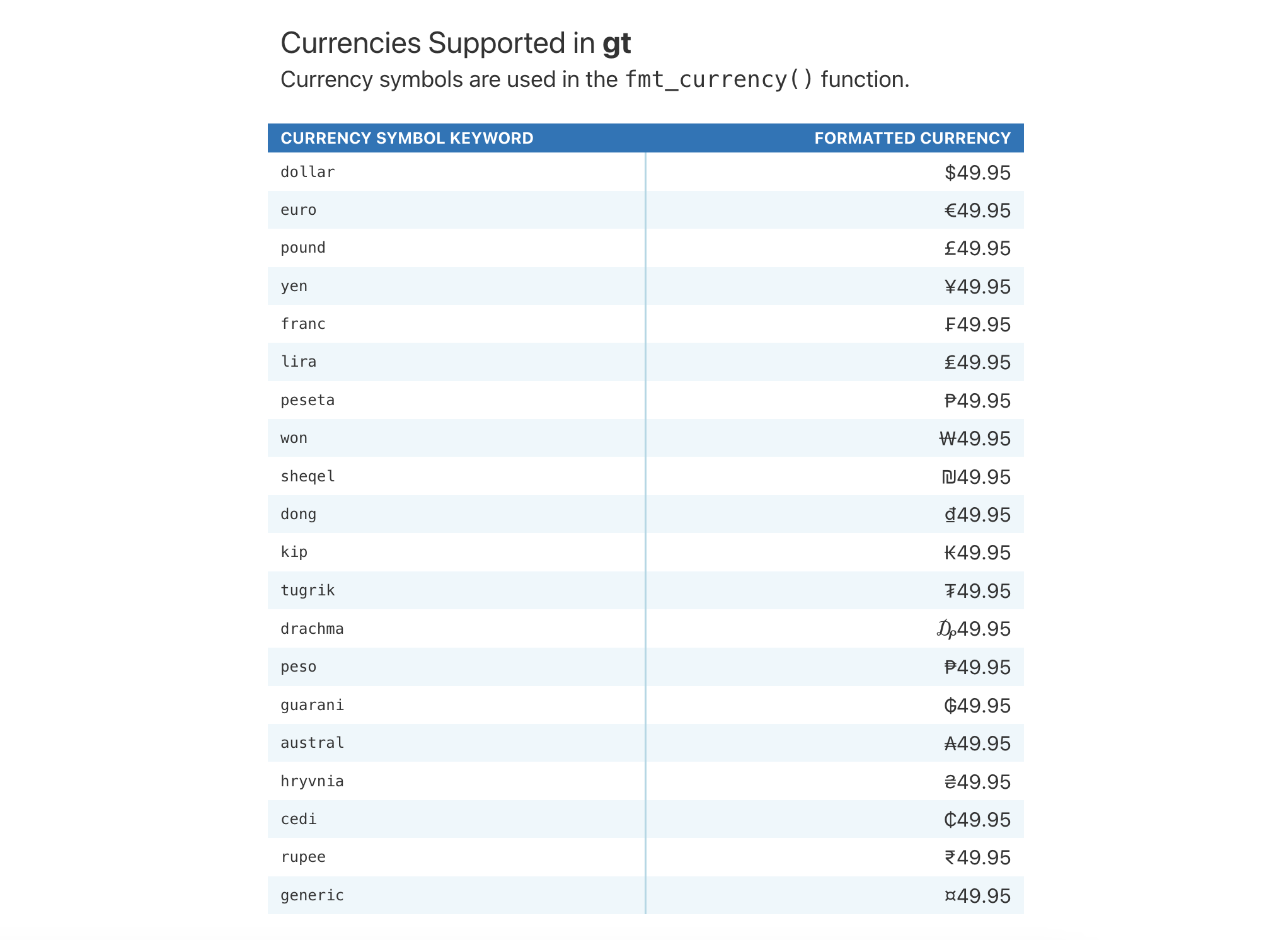fmt_currency() lets us format numeric values as currencies. The table
generated by info_currencies() provides a quick reference to all the
available currencies. The currency identifiers are provided (name, 3-letter
currency code, and 3-digit currency code) along with the each currency's
exponent value (number of digits of the currency subunits). A formatted
example is provided (based on the value of 49.95) to demonstrate the
default formatting of each currency.
Usage
info_currencies(type = c("code", "symbol"), begins_with = NULL)Arguments
- type
Type of currency
singl-kw:[code|symbol]// default:"code"The type of currency information provided. Can either be
"code"where currency information corresponding to 3-letter/3-number currency codes is provided, or"symbol"where currency info for common currency names/symbols (e.g., dollar, pound, yen, etc.) is returned.- begins_with
Show currencies beginning with a specific letter
scalar<character>// default:NULL(optional)Providing a single letter will filter currencies to only those that begin with that letter in their currency code. The default (
NULL) will produce a table with all currencies displayed. This option only constrains the information table wheretype == "code".
Details
There are 172 currencies, which can lead to a verbose display table. To make
this presentation more focused on retrieval, we can provide an initial letter
corresponding to the 3-letter currency code to begins_with. This will
filter currencies in the info table to just the set beginning with the
supplied letter.
Examples
Get a table of info on all of the currencies where the three-letter code
begins with an "h".
info_currencies(begins_with = "h")
Get a table of info on all of the common currency name/symbols that can be
used with fmt_currency().
info_currencies(type = "symbol")
See also
Other information functions:
info_date_style(),
info_flags(),
info_google_fonts(),
info_icons(),
info_locales(),
info_paletteer(),
info_tf_style(),
info_time_style(),
info_unit_conversions()